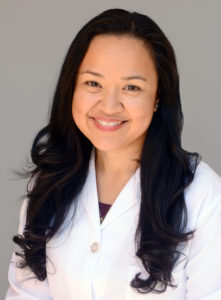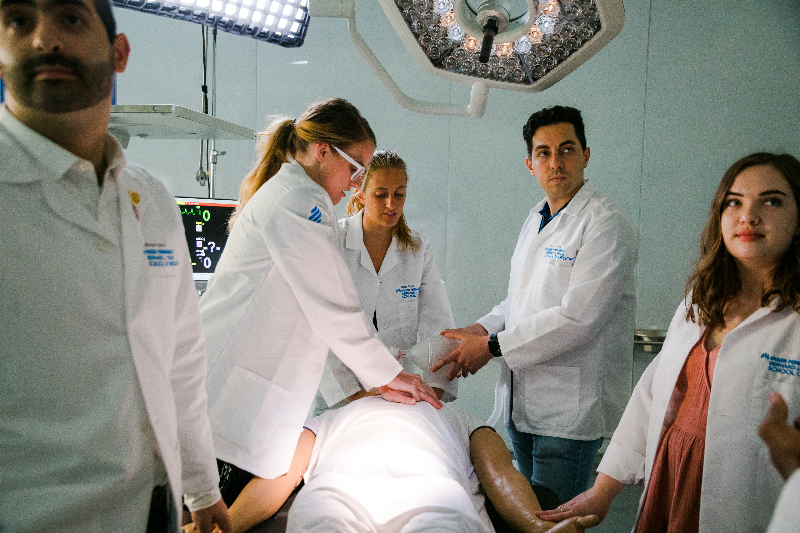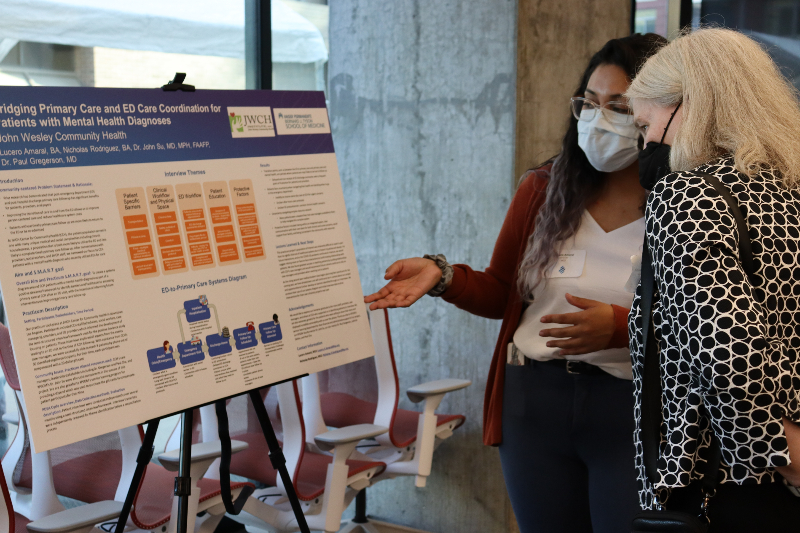Kaiser Permanente Bernard J. Tyson School of Medicine’s Simulation Center provides hands-on experience in a supportive environment.
Inside Perspective: Michelle Quiogue, MD
The Kaiser Permanente School of Medicine Diversity and Inclusion Brain Trust
The following article is a first-person piece from a Permanente physician on the ground floor of creating the new Kaiser Permanente School of Medicine.
Who am I?
My name is Michelle Quiogue, MD, and I am a family physician. I graduated from the Program in Liberal Medical Education (PLME) at Brown University and then trained at the Family Medicine Residency Program at Kaiser Permanente Los Angeles Medical Center. After paying back a National Health Service Corps scholarship by working for four years at a federally qualified health center in California’s Central Valley, I returned to Kaiser Permanente in 2007. Beginning in 2010, I have had the privilege to serve on the Southern California Permanente Medical Group’s Council for Diversity, Inclusion, and Health Equity at Kaiser Permanente Kern County. My newest Kaiser Permanente leadership role has been to serve as our medical center’s Physician Wellness Champion since the beginning of this year. Outside of Kaiser Permanente, I have been active in my specialty organization, the American Academy of Family Physicians. This year, I am humbled to serve as the chapter president of the California Academy of Family Physicians.
 What am I doing for the School of Medicine?
What am I doing for the School of Medicine?
Throughout much of 2015, I participated on a committee to develop the diversity and inclusion (D&I) framework included in the Kaiser Permanente School of Medicine business case, which was presented to the Kaiser Foundation Health Plan Board. Since 2016, I have continued to volunteer my time to integrate D&I principles and values into the Kaiser Permanente School of Medicine as a member of a highly passionate and energetic group of Permanente physicians called the D&I Brain Trust. This diverse group of Permanente leaders from across the country donates their time and expertise with the hope of mitigating the faulty biomedical framing of race in medical education and the inequities of access to medical education. We are excited at the prospect of creating the next generation of colleagues who will serve our communities by championing the cause of diversity and inclusion and promoting health equity.
How’s it going?
For me, it has been the privilege of a lifetime to contribute to the team charged with integrating diversity and inclusion into the Kaiser Permanente School of Medicine’s planning phase. To date, the D&I Brain Trust has participated in the admissions and curriculum discussions and provided relevant information to inform these core committees. A few examples of curricular concepts include:
- Social Determinants of Health
- Health and Health Care Equity
- Self-awareness and Unconscious Bias
- Culturally Appropriate Care Across Populations
- Diversity and Inclusion in the Workplace
Because so much has changed since I graduated from medical school, I seek to learn from current medical students. A group from my alma mater recently contributed significantly to the ongoing transformation of medical education in their article in Academic Medicine.[1] Reading about their work in a recent alumni magazine, this hope resonated with me:
Educational reform around race and inequity fundamentally improves the quality of medical education for all students, and has the added potential to promote physician leaders with the skills to meaningfully reduce health disparities. [2]
Going forward, I believe there is a strong commitment within the Kaiser Permanente School of Medicine to robust faculty development that prioritizes critical thought around social justice and intentionally develops skills around unconscious bias and structural racism. In our conversations, as well as in those happening at institutions across the country, there is active dialogue about how best to recruit and retain faculty, students, and administrators who will be called to lead the fight against health disparities.
[1] Jennifer Tsai, Laura Ucik, Nell Baldwin, Christopher Hasslinger, Paul George, MD, MHPE, “Race Matters? Examining and Rethinking Race Portrayal in Preclinical Medical Education,” Academic Medicine 91, no. 7 (July 2016): 916–920.
[2] Angela Zhang, Bryan Leyva, Denise Marte, Jennifer Tsai, Nell Baldwin, “Race in Medical Education,” Brown Medicine (Winter 2017)


